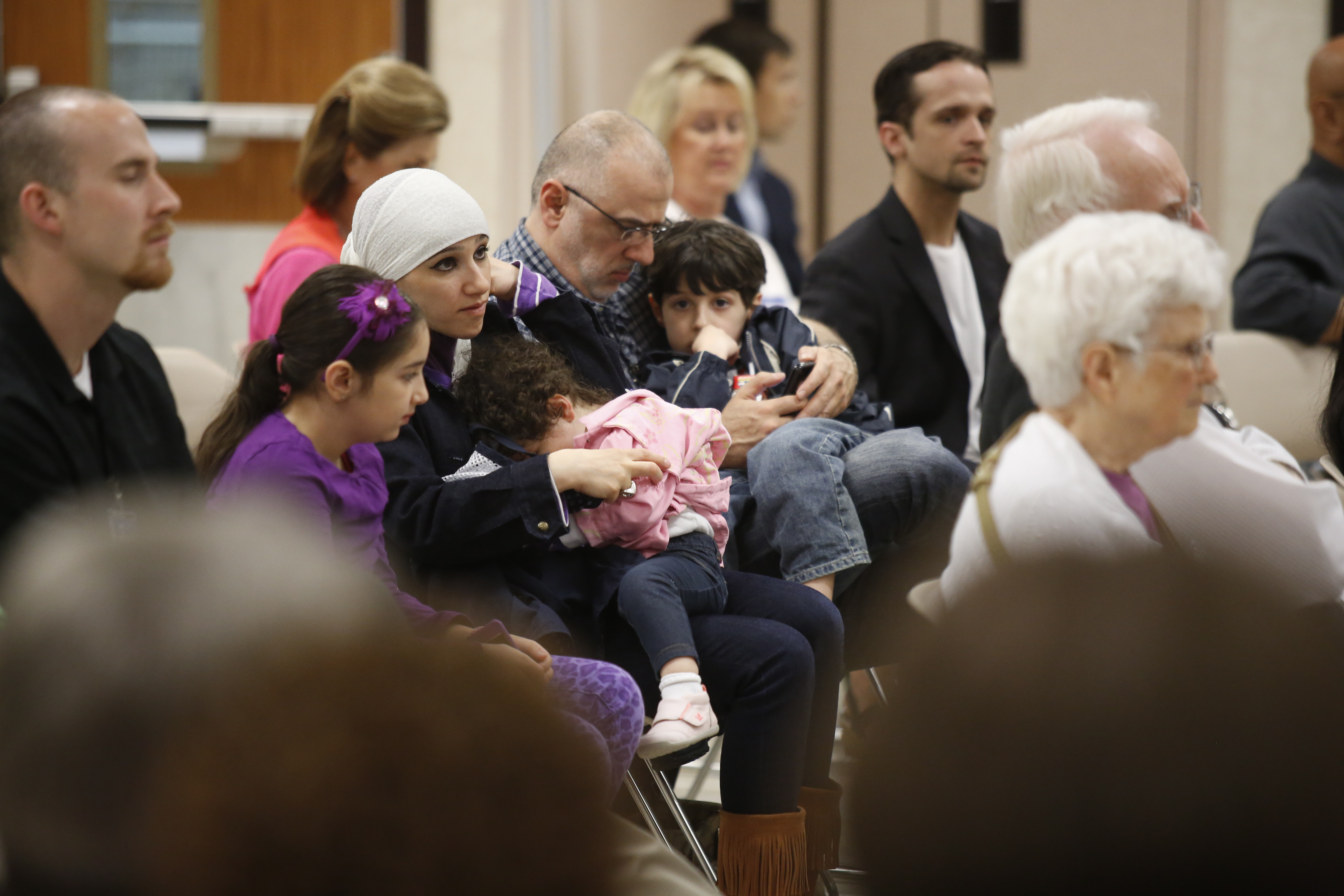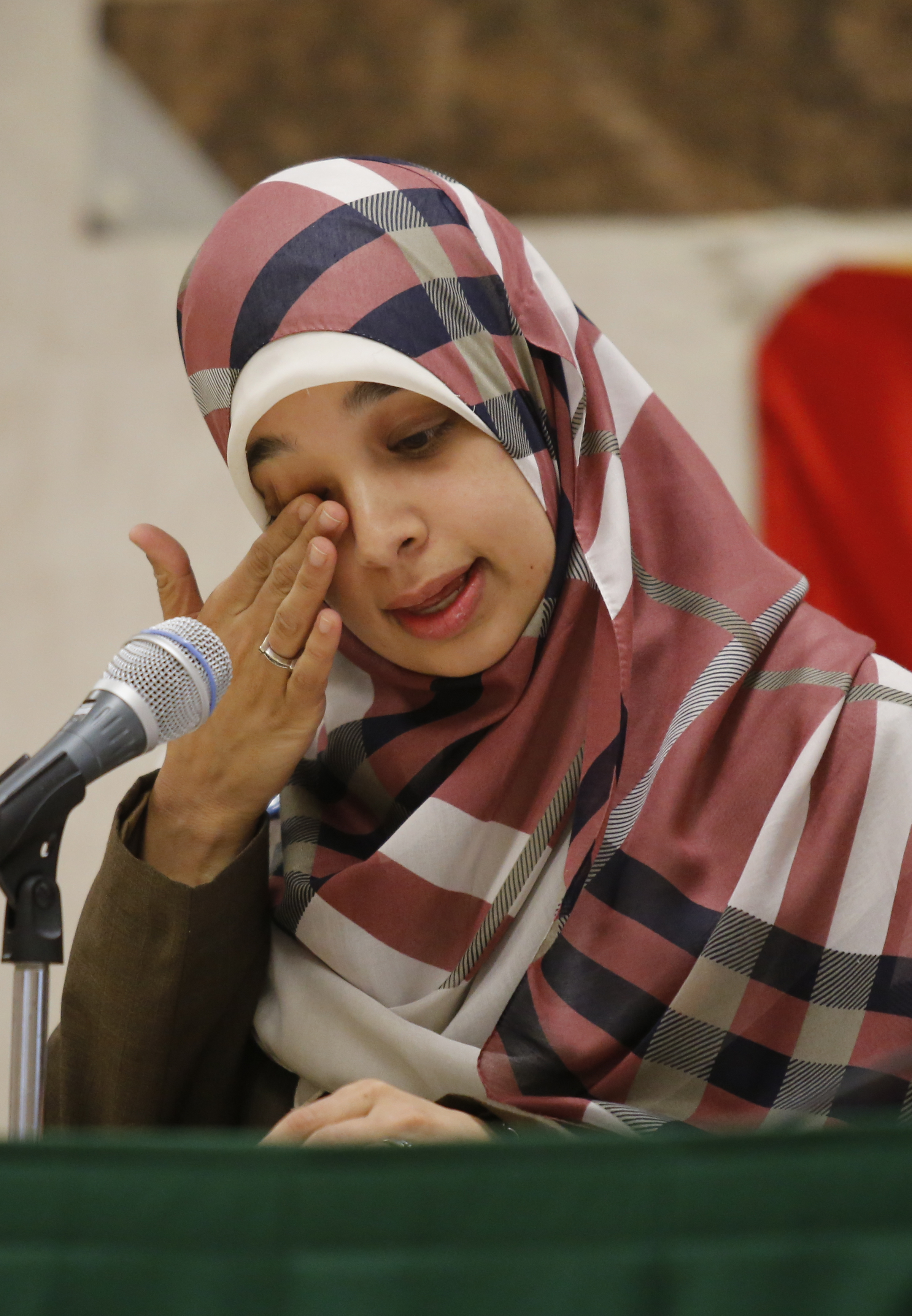If the forum hosted Monday in the UTC University Center took place in Egypt, those in attendance would likely have been arrested.
Though security personnel blanketed the room and chants of "down with the coup" briefly erupted as panelists told their first-hand accounts of the Egyptian struggle for democracy, the entire scene was perfectly legal in the United States.
That sort of freedom is what Mohamed Ahmed and Sarah Attia say they want to bring to the nation of Egypt.
The two were among several speakers who engaged with the crowd of close to 100 during "Democracy and Human Rights in Egypt," an afternoon-long event presented by Egyptians Abroad for Democracy.
Ahmed is a Chattanoogan born in Egypt who traveled to his native country during the summer and witnessed the bloody controversy surrounding the ousting of Mohamed Morsi, the nation's first democratically elected president who many feared because of his leadership in the Muslim Brotherhood and moves toward Islam-based governance.
Attia is the wife of one of Morsi's aides. She is raising her four children without the help of her husband as he remains in prison, silenced by the military's movement against Morsi that Egyptians Abroad for Democracy views as an oppressive coup.
The group feels the circumstances surrounding Morsi's removal from office and surrounding military violence in the country have been misrepresented by some media and not fully understood by the rest of the world, including the United States, which continues to provide financial aid to Egypt.
So to raise awareness of the issues in Egypt, the group is sharing the stories of those who have been immersed in them. Monday's visit to UTC was the first stop on the tour.
"We do not want to see any more innocent lives lost," said Ahmed, who holds a master's degree from Kennesaw State University and witnessed the killing of Morsi supporters during his visit to Egypt. "We do not want to give approximately $1.5 billion dollars of our tax money to a military that kills our own people."
Ahmed found himself the subject of a live CNN interview in the heart of the protests during his trip. He explained then, to a national television audience, the importance of respecting democracy and freedom over the efforts of the Egyptian military and media.
He told of the aftermath Monday.
"As usual, when I went home the Egyptian media was manipulating and twisting the facts and saying the peaceful protesters were attacking the residents of the area," Ahmed said.
Attia's husband, Khaled Al-Qazzaz, worked closely with Morsi. Attia recalled the 12-hour days her husband worked to help Egypt develop in its infant democracy. Those were hard enough on her and their children.
Then one day last summer, their dad did not come home. He had been arrested.
"What crime has Khaled done for 286 days of no freedom without charge?" Attia asked the audience at UTC. "Was his charge that he dreamed of democracy, that he dreamed of a better Egypt?"
Attia plans to return to Egypt soon.
In the meantime she is sharing her story in hopes the world will gain a better, more personal understanding of the issues Egypt faces.
"I am here today fighting for justice for my husband and for all Egyptians," she said, "and to share with you through my own view what my family and Egyptians have lived through."
Contact staff writer David Cobb at dcobb@timesfreepress.com or 423-757-6731.


